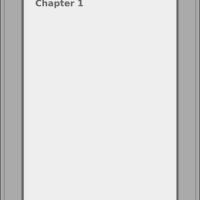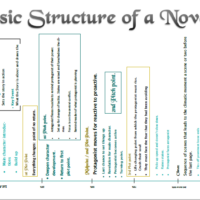
by Anna Johnstone | Oct 22, 2017 | Blog, Reblogged
There has been a lot of disturbing news recently about how Kindle is treating its authors.
Cases include books having their ranks stripped without warning, and even whole catalogues being removed. More disturbing is that Amazon appears to be denying their authors any redress – not to mention refusing there is a problem with their system. The only way to make this company face up to its obligation to uphold fair practices is to ensure Amazon cannot hide their poor-conduct. We must share these stories as far and as wide as we can.
Authors should be working together as a community rather than trying to sabotage each other or cheat the rankings. Sadly, there will always be those who do indulge in dishonest practices, but to be accused is not the same as being guilty. These authors deserve to be shown the evidence against them and given a chance to answer to it. If there is no evidence beyond what the algorithm vomits up, then should Amazon not be publicly apologising – if only for the sake of its own reputation – and working to improve their system? Based on the stock warnings, these cases appear to be the result of an overzealous, automated fraud prevention system that is clearly not working properly. These cases need to be dealt with carefully, individually, and by people rather than robots. The authors cannot be held responsible if their books have been targeted by scammers trying to boost their books by making others look guilty, This is the first thing that should be ruled out before punishment is dealt, especially when you consider that Amazon are jeopardising the livelihoods reputations of these authors.

Phoenix Sullivan is well-known in the indie community – I’ve known her myself since 2009 or 2010 and consider her a close friend. Aside from being exceptionally generous with her time and knowledge…
Source: Amazon’s Hall of Spinning Knives | David Gaughran
by | Nov 24, 2016 | Advice, Reblogged
Want to know the most important thing about writing dialogue in fiction? If it sounds like a conversation you’d hear in the real world, you’ve gone horribly wrong somewhere.
Seriously. The next time you’re on a crowded bus or sitting by yourself in a bustling restaurant, just listen to the two people closest to you talking. You’ll hear them…
http://www.novel-writing-help.com/writing-dialogue.html
by | Nov 23, 2016 | Advice, Reblogged
More great advice from Anne R. Allen
Let’s face it: first chapters are hard. When you’re writing your first draft, you’re writing for yourself—getting to know your characters and their world. You should let everything spill out on the page free of your inner editor’s censorship. But when you’re revising, it’s a different story. You’ll need to cut […]
Source: 10 Things Your Opening Chapter Should Do: A Check-List for Self-Editing – Anne R. Allen’s Blog… with Ruth Harris
by | Nov 20, 2016 | Advice, Blog, Reblogged
There are certain storytelling clichés writers go back to again and again. And they shouldn’t. Because they are terrible, and they need to be destroyed.
Source: Top 10 Storytelling Cliches Writers Need To Stop Using | LitReactor
by | Oct 18, 2016 | Advice, Reblogged
Before you hire an editor, you need to know what kind of help you’re looking for.
http://www.writersdigest.com/online-editor/10-things-your-freelance-editor-might-not-tell-you-but-should
This post offers excellent advice to new writers. Read it. Save it. Keep referring back to it but to summarise.
- Avoid the temptation to submit a first draft. (Really never do this. Harry DeWulf has some great advice on self-editing)
- Editing and ghostwriting are not the same thing.
- Is your book in the editor’s preferred genre. (I am not fussy, my tastes are fairly eclectic but I do enjoy prophetic dystopian sci-fi).
- Critical feedback is a given. It is our job to help you improve your work.We want you to succeed.
- Writing is a hike not a sprint. It takes time to get it right so set realistic goals.
- Copy-editing and proofreading are a waste of time and money prior to addressing structure and clarity.
- Do not confuse being published with being a good writer.
- Tell your editor what you want to accomplish. It is your work, and it makes their job easier.
- Minor changes to tiny details are not revision. Don’t be afraid to discuss the feedback if you disagree with it. (See point 8).
- The editor is on your side: the reader won’t be, but remember that it is your work.















